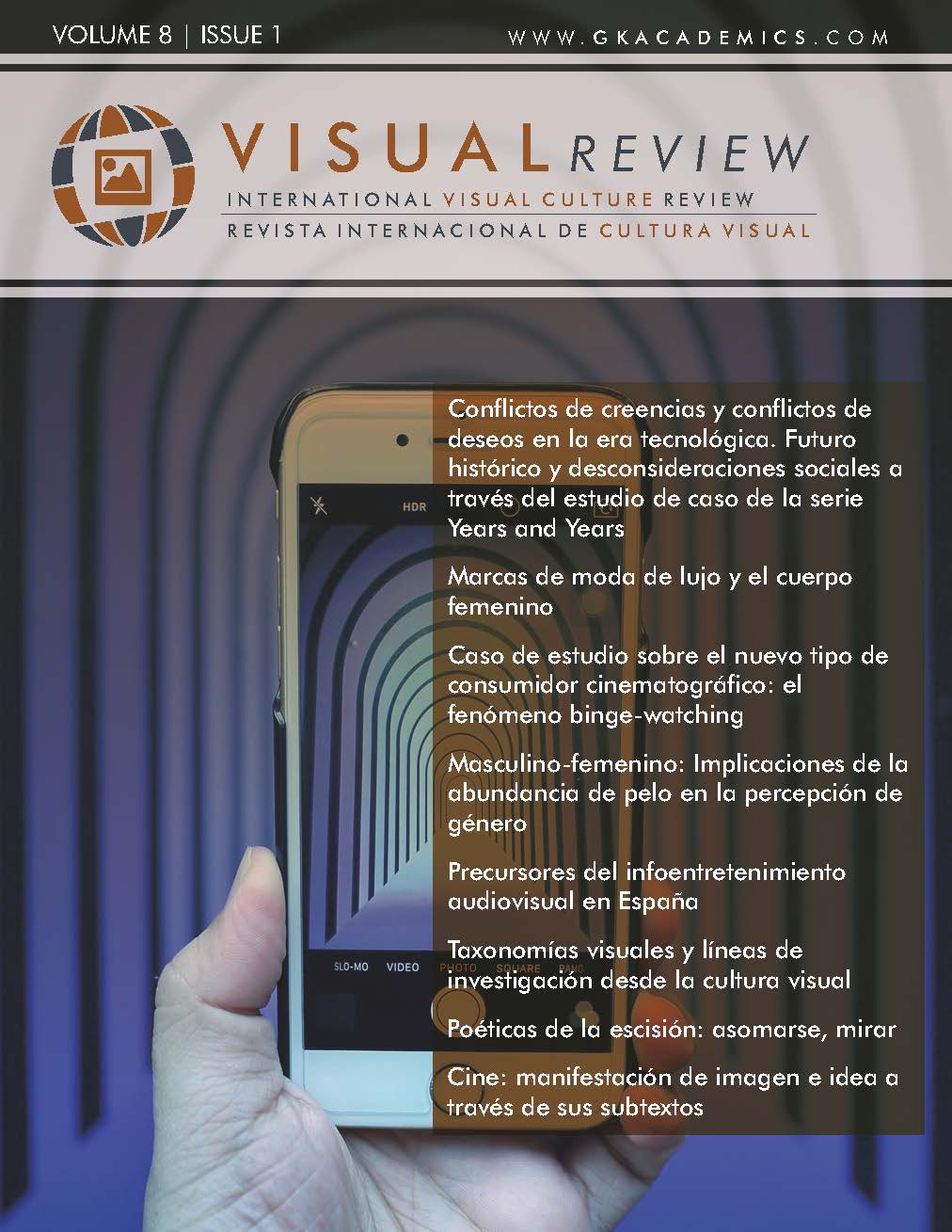Pioneers of Spanish audiovisual infotaintment
Visual culture and satirical caricatures in "The Motin"
DOI:
https://doi.org/10.37467/gka-revvisual.v8.2481Keywords:
Satirical press, Populist reason, El Motín, People, CaricatureAbstract
In the late nineteenth century, the Spanish satirical press adopted a series of rhetorical strategies to offer the people a unique place within the representation of society. As Martínez Gallego has pointed out, the satirical weekly El Motín depicts an example of populist reason in the sense that Ernesto Laclau could argue. Through the content analysis of several cartoons, we examined the place that El Motín reserved to the floating signifier of the people. The satirical press let an illiterate working class deal with the issues of the political sphere.
Downloads
Global Statistics ℹ️
|
394
Views
|
385
Downloads
|
|
779
Total
|
|
References
Althusser, L. (1988). Ideología y aparatos ideológicos del Estado. Stanford Encyclopedia of Philosophy. https://doi.org/10.3917/amx.045.0128 DOI: https://doi.org/10.3917/amx.045.0128
Benjamin, W. (1936). The work of art in the age of the mechanical reproduction. UCLA School of Theater, Film and Television.
Bennett, L. (2003). News: The Politics of Illusion. New York and London: Longman.
Cantavella, J. y Serrano J. F. (Coords.). (2004). Redacción para periodistas: informar e interpretar. Barcelona: Ariel.
Custodi, J. (2018). ¿Una nueva teoría sobre populismo? Reseña de libro: Müller, J.W. What Is Populism? Revista CIDOB d’Afers Internacionals, n.119, p. 287-303.
Foucault, M. (1982). The Subject and Power. Critical Inquiry, 8, 4. https://doi.org/10.1086/448181 DOI: https://doi.org/10.1086/448181
Habermas, J. (1984). The Theory of Communicative Action 1. Reason and Rationalization of Society. In Beason Press. https://doi.org/10.1017/CBO9781107415324.004 DOI: https://doi.org/10.1017/CBO9781107415324.004
Hutcheon, L. (1994) Irony’s edge. The theory and politics of irony. London: Routledge.
Laclau, E. (2005). The “People” and the Discursive Production of Emptiness. In On Populist Reason.
Laguna, A., Martínez Gallego, F.A. y Sujatovich, L. (2016) Eduardo Sojo: el artífice del periodismo satírico en España y Argentina. Historia y Comunicación Social, 21(2) , 433-461. DOI: https://doi.org/10.5209/HICS.54372
Martínez Gallego, F. A. (2017). José Nakens en la construcción de la cultura política republicana. En Gómez Mompart, J.L., Martínez Gallego, F.A., Bordería, E. (eds.). El humor y la cultura política en la España contemporánea. Barcelona: Hacer.
Mudde, C., & Rovira Kaltwasser, C. (2012). Exclusionary vs. Inclusionary Populism: Comparing Contemporary Europe and Latin America. Government and Opposition. https://doi.org/10.1017/gov.2012.11 DOI: https://doi.org/10.1017/gov.2012.11
Müller, J.W. (2016). What is populism? Philadelphia: University of Pennsylvania Press DOI: https://doi.org/10.9783/9780812293784
Pardo, J.L. (2016). Estudios del malestar. Políticas de la autenticidad en las sociedades contemporáneas. Barcelona: Anagrama.
Stockemer, D. (ed.). (2019). Populism around the world. A comparative perspective. Cham, Suiza: Springer. DOI: https://doi.org/10.1007/978-3-319-96758-5
Taggart, P. (2000). Populism. Buckingham, Philadelphia: Open University Press.
Taggart, P. (2000). Populism. Concepts in social sciences. Philadelphia: Open University Press.
Weber, M. (1968). Economy and Society, 3 vols. Totowa, NJ: Bedminster Press.
Downloads
Published
How to Cite
Issue
Section
License
Those authors who publish in this journal accept the following terms:
-
Authors retain copyright.
-
Authors transfer to the journal the right of first publication. The journal also owns the publishing rights.
-
All published contents are governed by an Attribution-NoDerivatives 4.0 International License.
Access the informative version and legal text of the license. By virtue of this, third parties are allowed to use what is published as long as they mention the authorship of the work and the first publication in this journal. If you transform the material, you may not distribute the modified work. -
Authors may make other independent and additional contractual arrangements for non-exclusive distribution of the version of the article published in this journal (e.g., inclusion in an institutional repository or publication in a book) as long as they clearly indicate that the work was first published in this journal.
- Authors are allowed and recommended to publish their work on the Internet (for example on institutional and personal websites), following the publication of, and referencing the journal, as this could lead to constructive exchanges and a more extensive and quick circulation of published works (see The Effect of Open Access).














